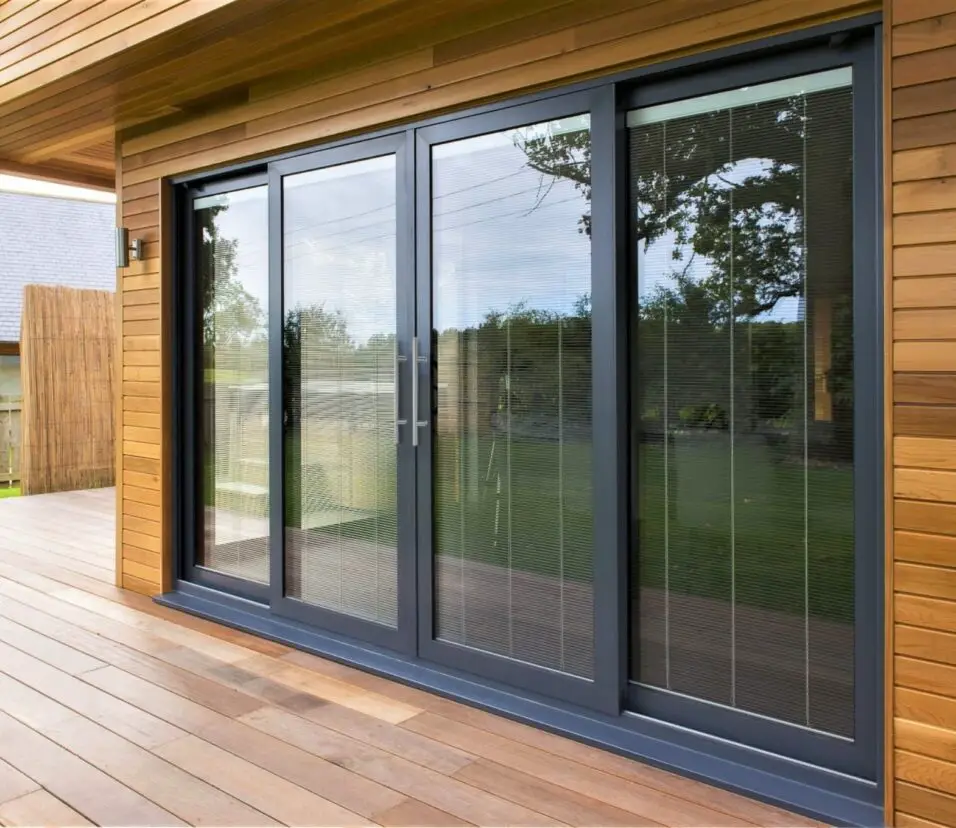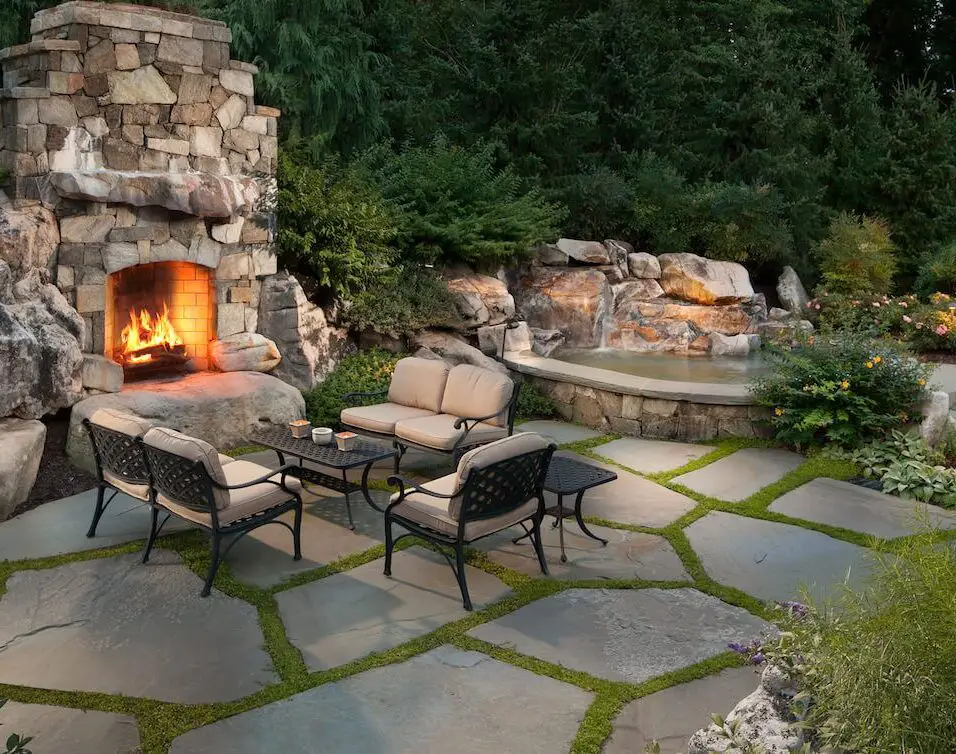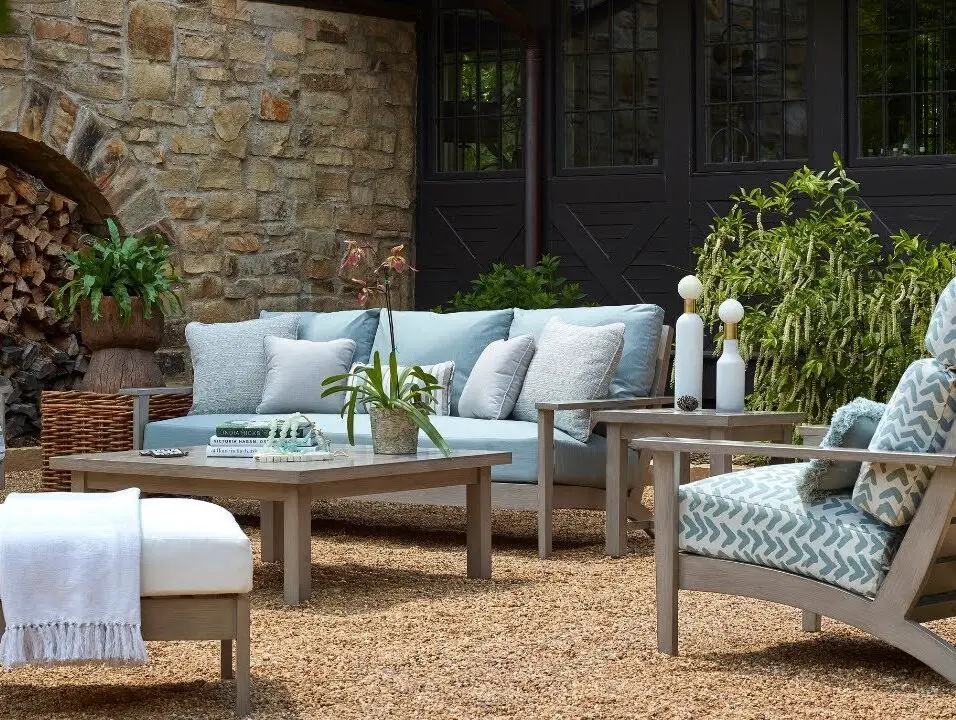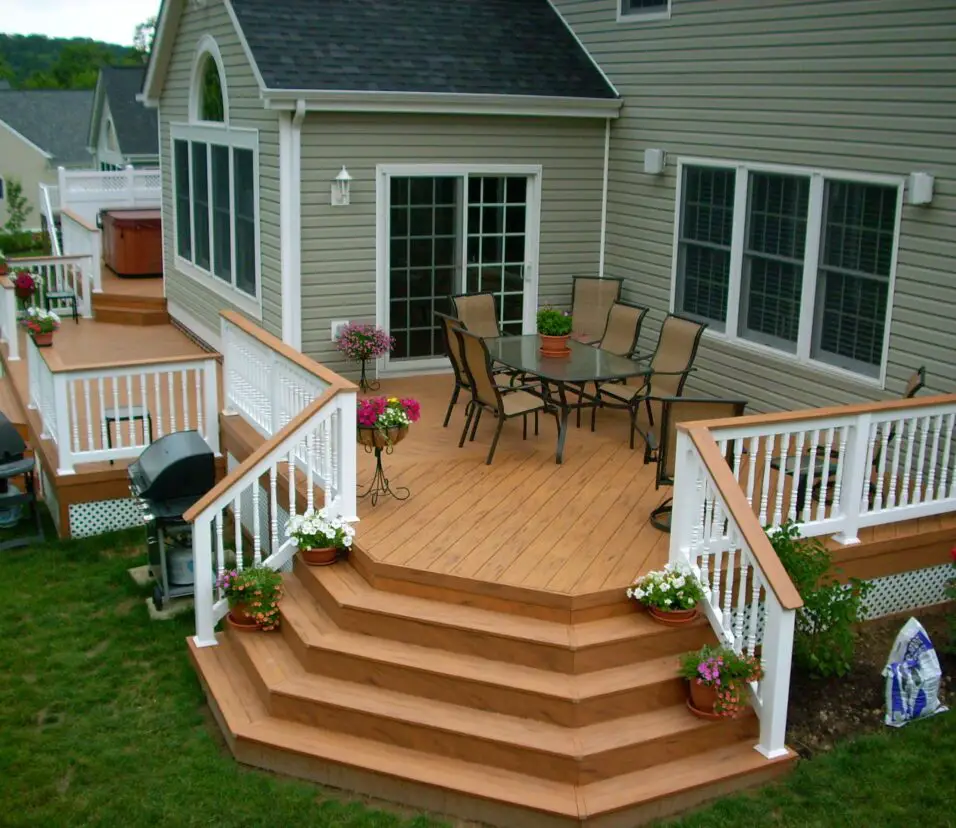What Are Patio Pavers
Introduction
What Are Patio Pavers: Patio pavers are a popular choice for homeowners looking to enhance their outdoor living spaces. These versatile and durable materials are used to create beautiful and functional patios, walkways, and driveways. Patio pavers come in a variety of shapes, sizes, and colors, allowing homeowners to customize their outdoor spaces to suit their personal style and preferences.
Patio pavers are individual pieces of concrete, stone, or brick that are laid in a specific pattern to create a solid surface. They are typically interlocking, which means they fit together like puzzle pieces, providing stability and strength. This interlocking design also allows for flexibility, as individual pavers can be easily replaced if they become damaged or stained.
One of the main advantages of outside patio pavers is their durability. Unlike poured concrete or asphalt, which can crack and deteriorate over time, patio pavers are designed to withstand the elements and heavy foot traffic. They are resistant to freeze-thaw cycles, meaning they won’t crack or shift when exposed to extreme temperature changes. This makes patio pavers an ideal choice for areas with harsh winters or hot summers.
Another benefit of patio pavers is their versatility. With a wide range of colors, textures, and patterns to choose from, homeowners can create a unique and personalized outdoor space. Whether you prefer a classic, traditional look or a more modern, contemporary design, there are patio pavers available to suit every style. Additionally, patio pavers can be used to create various outdoor features, such as fire pits, seating walls, and planters, further enhancing the functionality and aesthetic appeal of your outdoor living area.

What is the downside of paver patio?
A paver patio is a popular choice for homeowners who want to create an outdoor living space that is both functional and aesthetically pleasing. Paver patios offer a number of benefits, including durability, versatility, and easy maintenance. However, like any other construction project, there are also downsides to consider when it comes to installing a paver patio.
Another drawback of paver patios is cost. High-quality pavers like genuine stone or concrete can be pricey. Laborious and time-consuming installation might further increase project costs. Before installing a paver patio, evaluate your budget and the pros and downsides.
Paver patios may shift over time. Pavers are durable, but freeze-thaw cycles and soil movement can damage them. This can shift or settle pavers, creating an uneven surface. To maintain its appearance, your patio may need re-leveling or paver replacement.
Paver patios may shift and sprout weeds. Weeds thrive in paver joints. Keeping the patio weed-free requires regular weeding or weed-killing treatments. Consider the continuous upkeep needed to keep your paver patio looking great.
Finally, paver patios stain and discolor more easily than other patio materials. Food, drink, and other spills can stain pavers. Sunlight and rain can also fade pavers. Cleaning and sealing your paver patio may be important to maintain its beauty.
What are paver patios made from?
Paver patios are a popular choice for homeowners who want to create an outdoor living space that is both functional and aesthetically pleasing. These patios are made from a variety of materials, each with its own unique characteristics and benefits. Understanding the different options available can help you make an informed decision about which material is best suited for your needs.
Paver patios often use concrete. The cement, sand, and aggregate mixture is put into molds and hardened to make concrete pavers. The material is sturdy and adaptable, suitable for many patio designs. Concrete pavers come in many forms, sizes, and colors, letting homeowners design their patio to suit their aesthetic.
Another popular paver patio material is natural stone. Stone pavers are made of limestone, granite, or sandstone. These materials are mined and turned into pavers. Stone pavers are durable and attractive. These solutions may cost more and require more maintenance to look their best.
The basic paver patio material is brick. Hot-fired clay makes brick pavers robust and durable. Brick pavers give old-world elegance to outdoor spaces with their rich color and texture. They are easy to install and maintain, making them popular with DIYers.
Finally, rubber pavers are available for patios. Recycled rubber pavers are eco-friendly. Durable, slip-resistant, and comfy rubber pavers are ideal for families and seniors. They are simple to install and maintain.
Are pavers a good idea for a patio?
When it comes to creating a patio, there are several options to choose from. One popular choice is using pavers. Pavers are a type of outdoor flooring that can be made from various materials such as concrete, brick, or natural stone. They are known for their durability, versatility, and aesthetic appeal. But are pavers a good idea for a patio? Let’s explore the benefits and considerations of using pavers for your patio.
Pavers offer several designs. Pavers enable custom patio designs, a key benefit. You may design your patio to match your taste and outside space with pavers of various shapes, sizes, colors, and patterns. Brick or concrete pavers can provide a traditional or modern aesthetic.
Pavers are durable and perfect for patios. It can withstand heavy traffic, weather, and time. Pavers outlast other patio materials. This ensures that your patio will look and work properly for years.
Pavers simplify patio maintenance, which takes time. Pavers are easier to maintain than other patio materials. Cleaning and maintaining them is easy because they resist stains, mold, and mildew. Damaged pavers can be replaced without redoing the patio. Pavers are a good solution for individuals who want a gorgeous patio without the maintenance.
Pavers boost home value. If you plan to sell your house, a paver patio may be a good investment. Buyers like pavers because they provide curb appeal and value. A well-designed and maintained paver patio can differentiate your property in the real estate market and attract more purchasers.
Is it cheaper to lay concrete or pavers?
When it comes to choosing between concrete and pavers for your outdoor space, cost is often a significant factor to consider. Both options have their advantages and disadvantages, but determining which one is cheaper requires a closer look at various factors.
Concrete is a popular choice for many homeowners due to its durability and low maintenance. It is typically less expensive upfront compared to pavers, making it an attractive option for those on a tight budget. The cost of concrete installation can vary depending on factors such as the size of the area, the complexity of the design, and the region you live in.
One of the main advantages of concrete is its ability to cover large areas quickly and efficiently. This means that labor costs for concrete installation are generally lower than those for pavers. Additionally, concrete requires minimal maintenance, which can save you money in the long run.
Pavers, on the other hand, offer a more versatile and aesthetically pleasing option for outdoor spaces. While they may be more expensive upfront, pavers can add value to your property and enhance its curb appeal. The cost of paver installation can vary depending on factors such as the type of pavers chosen, the complexity of the design, and the region you live in.
One of the advantages of pavers is their flexibility. They can be easily replaced if damaged or stained, which can save you money on repairs in the future. Pavers also offer a wide range of design options, allowing you to create a unique and personalized outdoor space.
Are pavers hard to maintain?
When it comes to maintaining outdoor spaces, one common concern is the upkeep of pavers. Pavers are a popular choice for driveways, walkways, and patios due to their durability and aesthetic appeal. However, many people wonder if they are hard to maintain. The answer to this question depends on various factors, including the type of pavers, the climate, and the level of maintenance provided.
The type of pavers utilized is crucial. Materials include concrete, brick, and natural stone. Materials have different maintenance needs. Concrete pavers are low-maintenance and pressure-washable. However, real stone pavers may stain and need sealing.
Second, paver upkeep depends on the climate. Pavers may crack or shift in hard winters or numerous freeze-thaw cycles. For longevity, they may need regular inspections and repairs. To prevent moss and algae growth, pavers in high humidity or rainfall areas may need more frequent cleaning.
Thirdly, homeowner upkeep influences paver maintenance ease. Dirt and debris can discolor or damage over time, so regular sweeping and cleaning can assist. Sealants prevent stains and make pavers simpler to clean. For optimal performance, follow the manufacturer’s maintenance instructions.
Patio pavers provide a strong, durable surface for patios, walkways, driveways, and other outdoor areas. They are composed of concrete, brick, stone, or tile and vary in shape, size, and color.
Patio pavers are interlocking, so they fit together effortlessly to produce a smooth, attractive surface. They are strong and durable, making them perfect for high-traffic locations. Patio pavers also resist weathering, fading, and cracking, ensuring their longevity.
Can you explain the purpose of patio pavers?
The main purpose of patio pavers is to provide a solid and stable surface for outdoor areas such as patios, walkways, and driveways. They are specifically designed to withstand heavy foot traffic, as well as the weight of vehicles, making them a practical choice for both residential and commercial applications.
Patio pavers also offer aesthetic benefits, as they come in a variety of colors, textures, and patterns, allowing homeowners and designers to create unique and visually appealing outdoor spaces. They can be arranged in different configurations to create interesting designs and can be easily replaced or repaired if damaged.
What materials are commonly used for patio pavers?
There are several materials commonly used for patio pavers, including concrete, brick, stone, and tile. Concrete pavers are a popular choice due to their affordability, durability, and versatility. They can be manufactured in various shapes and sizes, and can even mimic the appearance of natural stone.
Brick pavers are another common option, known for their classic and timeless look. They are durable and can withstand heavy loads, making them suitable for driveways and high-traffic areas. Stone pavers, such as granite, limestone, or sandstone, offer a natural and elegant look, and are often used to create a more upscale and luxurious outdoor space. Tile pavers, on the other hand, provide a sleek and modern aesthetic, and are available in a wide range of” “
Can you explain the purpose of patio pavers?
Patio pavers are a popular choice for creating outdoor living spaces. They are typically made from various materials such as concrete, brick, or stone, and are designed to be durable and long-lasting. The purpose of patio pavers is to provide a solid and stable surface for outdoor activities, such as dining, entertaining, or simply relaxing.
One of the main advantages of using patio pavers is their ability to withstand heavy foot traffic and extreme weather conditions. They are designed to be resistant to cracking, fading, and other forms of damage, making them an ideal choice for outdoor areas that are frequently used. Additionally, patio pavers can be arranged in various patterns and designs, allowing for a customized and visually appealing outdoor space.
Another important purpose of patio pavers is their ability to enhance the overall aesthetics of a property. They come in a wide range of colors, shapes, and sizes, allowing homeowners to create a unique and personalized outdoor space. Whether it’s a traditional or modern design, patio pavers can add beauty and value to any home.
What materials are commonly used for patio pavers?
Patio pavers are commonly made from a variety of materials, each with its own unique characteristics and benefits. One of the most popular materials used for patio pavers is concrete. Concrete pavers are durable, versatile, and come in a wide range of colors, shapes, and sizes. They can be easily customized to fit any design aesthetic and are known for their strength and longevity. Concrete pavers are also relatively low-maintenance, making them a practical choice for outdoor spaces.
Another commonly used material for patio pavers is natural stone. Natural stone pavers, such as granite, limestone, or sandstone, offer a timeless and elegant look to any patio. They are known for their durability and ability to withstand harsh weather conditions. Natural stone pavers also have a unique texture and color variation, adding a touch of natural beauty to outdoor spaces. However, it’s important to note that natural stone pavers may require more maintenance compared to other materials, as they may need to be sealed periodically to protect against stains and damage.
What are the advantages of using patio pavers?
Patio pavers offer numerous advantages that make them a popular choice for outdoor spaces. One of the main advantages is their durability. Patio pavers are made from strong materials such as concrete, brick, or stone, which can withstand heavy foot traffic, extreme weather conditions, and the test of time. This means that once installed, patio pavers can last for many years without needing to be replaced.
Another advantage of using patio pavers is their versatility. They come in a wide range of shapes, sizes, colors, and patterns, allowing homeowners to create unique and customized designs for their outdoor spaces. Whether you prefer a traditional or modern look, patio pavers can be arranged in various ways to achieve the desired aesthetic.
Furthermore, patio pavers are relatively easy to install and maintain. They can be laid on a sand or gravel base, which makes the installation process quicker and less complicated compared to other outdoor flooring options. Additionally, if a paver gets damaged or stained, it can be easily replaced without having to redo the entire patio. Regular maintenance involves simple tasks such as sweeping, occasional power washing, and resealing to keep the pavers looking their best.
Are there any specific maintenance requirements for patio pavers?
Yes, there are specific maintenance requirements for patio pavers. While patio pavers are known for their durability and low maintenance, they still require some attention to keep them looking their best and to ensure their longevity.
One important maintenance task for patio pavers is regular cleaning. This involves removing any dirt, debris, or stains that may accumulate on the surface of the pavers. This can be done by sweeping or using a leaf blower to remove loose dirt and debris, and then using a mild detergent and water solution to scrub away any stains. It is important to avoid using harsh chemicals or abrasive cleaners, as these can damage the pavers.
Another important maintenance requirement for patio pavers is sealing. Sealing the pavers helps to protect them from the elements, such as rain, snow, and UV rays. It also helps to prevent the growth of weeds and moss between the pavers. The frequency of sealing will depend on the type of pavers and the climate in which they are installed, but it is generally recommended to seal them every 2-3 years. Before sealing, it is important to thoroughly clean the pavers and allow them to dry completely.

Conclusion
Patio pavers are a popular choice for homeowners looking to enhance their outdoor living spaces. These versatile and durable materials offer a wide range of benefits, making them an excellent option for creating a beautiful and functional patio area. Whether you’re looking to create a cozy seating area, a dining space, or a place to entertain guests, patio pavers can help you achieve your desired look and feel.
One of the main advantages of patio pavers is their durability. Made from materials such as concrete, brick, or stone, these pavers are designed to withstand the elements and heavy foot traffic. This means that your patio will remain in excellent condition for years to come, even with regular use. Additionally, patio pavers are resistant to cracking, fading, and staining, ensuring that your outdoor space will maintain its beauty and functionality over time.
Another benefit of patio pavers is their versatility. With a wide range of colors, shapes, and sizes available, you can easily customize your patio to suit your personal style and preferences. Whether you prefer a classic, rustic, or modern look, there are patio pavers available to help you achieve your desired aesthetic. Additionally, patio pavers can be arranged in various patterns, allowing you to create unique designs and add visual interest to your outdoor space.
Furthermore, patio pavers are relatively easy to install and maintain. Unlike other outdoor flooring options, such as concrete or natural stone, patio pavers can be installed without the need for specialized equipment or professional assistance. This makes them a cost-effective choice for homeowners who are looking to upgrade their outdoor spaces on a budget. Additionally, patio pavers are and maintain, requiring only regular sweeping and occasional rinsing to keep them looking their best.








